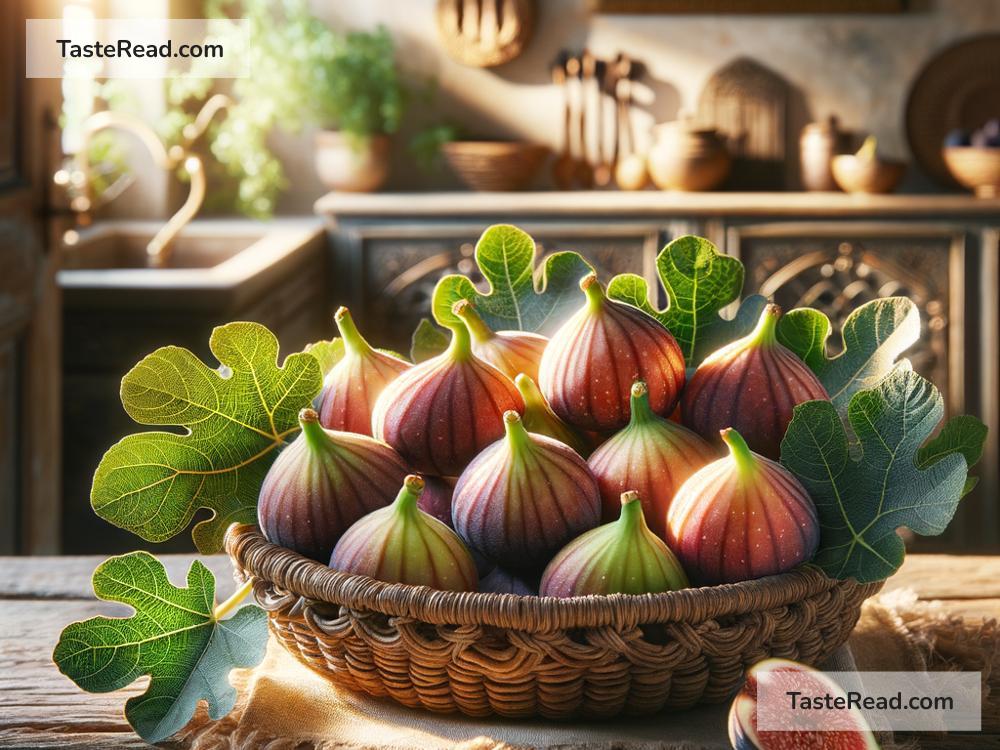The Surprising Link Between Figs and Fertility
For centuries, humans have been fascinated by the mystery of fertility. From ancient rituals to modern science, people across cultures have searched for ways to support reproductive health. One surprising food that has been tied to fertility is the humble fig. This delicious and nutritious fruit has been revered by many cultures throughout history not only for its flavor but also for its potential impact on reproductive health. Let’s explore the fascinating connection between figs and fertility and why they might just deserve a special spot in your diet.
A Fruit with Ancient Roots
Figs are one of the oldest cultivated fruits in the world. Historical records suggest that figs were grown as far back as 5,000 years ago in Mesopotamia, making them one of humanity’s earliest food crops. Ancient civilizations, such as the Greeks, Egyptians, and Romans, held figs in high regard, often associating them with fertility, abundance, and prosperity. Legend has it that figs were considered sacred in these cultures and were even offered to deities in fertility rituals.
In Greek mythology, the fig tree was linked to Demeter, the goddess of agriculture and fertility. Similarly, in Roman culture, figs were used in celebrations honoring Bacchus, the god of wine and fertility. But were these ancient practices merely symbolic, or does science support the idea that figs have an impact on fertility?
Nutritional Goodness Packed in a Fig
Let’s take a closer look at what makes figs a nutritional powerhouse. This fruit is loaded with vitamins, minerals, and antioxidants that support overall health. Figs are particularly rich in:
- Fiber: Helps improve digestion and regulate blood sugar levels, which can benefit hormonal balance.
- Iron: Essential for healthy blood flow and oxygen transport, which is crucial for reproductive health.
- Calcium: Supports strong bones and helps maintain hormonal function.
- Potassium: Promotes proper muscle function and keeps your heart healthy.
- Vitamin B6: Plays a role in hormone regulation and balancing mood, which can impact fertility.
These nutrients make figs a fantastic addition to a balanced diet, especially for individuals trying to boost their reproductive health.
The Fertility Connection
While research on the direct link between figs and fertility is still limited, indirect evidence suggests that the nutrients in figs may positively influence reproductive health. Here are some ways figs might support fertility:
-
Hormonal Balance
Hormones play a critical role in fertility, and imbalances can make it more difficult to conceive. Figs contain vitamin B6, which has been shown to help regulate the production of hormones such as progesterone and estrogen. Keeping these hormones in check is essential for maintaining a healthy menstrual cycle. -
Improved Blood Flow
Fertility depends on healthy blood flow to the reproductive organs. The iron in figs aids in the production of hemoglobin, which is responsible for delivering oxygen to cells throughout the body. By supporting healthy circulation, figs can contribute to creating an ideal environment for conception. -
Antioxidant Support
Figs are packed with antioxidants, which can combat oxidative stress—a condition that can negatively affect fertility. Oxidative stress damages cells, including eggs and sperm, making it harder for couples to conceive. Eating antioxidant-rich foods like figs may help protect these reproductive cells. -
Support for Male Fertility
Figs aren’t just beneficial for women! They may also support male fertility. Zinc, found in small quantities in figs, is critical for sperm production and overall sperm health. Additionally, the antioxidants in figs can help protect sperm from damage caused by free radicals. -
Natural Aphrodisiac
Figs have long been considered a natural aphrodisiac. Their sweet, sensual taste and soft texture have been thought to stimulate desire and intimacy, which can indirectly support fertility by encouraging closeness between partners.
How to Include Figs in Your Diet
Incorporating figs into your daily diet is easy and delicious. You can enjoy fresh figs when they’re in season, usually in late summer or early fall. Dried figs are available year-round and make a great snack or addition to recipes. Here are some ideas to try:
- Add chopped figs to oatmeal or yogurt for a sweet and nutritious breakfast.
- Blend figs into smoothies for a fruity twist.
- Pair dried figs with nuts for a healthy on-the-go snack.
- Use figs as a natural sweetener in baked goods like muffins or energy bars.
- Enjoy figs stuffed with cheese or wrapped in prosciutto for a decadent appetizer.
A Word of Caution
Although figs offer many potential benefits, eating them in moderation is key. They are naturally high in sugar, so overconsumption can lead to spikes in blood sugar or weight gain, which could negatively impact fertility. As with any food, balance is important.
Final Thoughts
Figs have a long history of association with fertility, and modern science suggests that their nutrient-rich profile may indeed offer benefits for reproductive health. While they’re not a magical solution for infertility, figs can be a valuable part of a balanced diet that supports overall wellness and hormonal balance.
If you’re looking for a delicious and healthy way to enhance your fertility, consider adding figs to your meals. Whether you snack on them fresh or enjoy them dried, these ancient fruits are a sweet reminder of nature’s ability to nourish and sustain us—body, mind, and spirit. So next time you head to the grocery store, don’t overlook the mighty fig!


